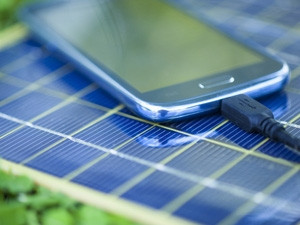
The race is on to develop a battery that will be a game-changer for the smartphone sector, as it will remove the constant recharging burden.
The growing challenge of developing a battery that does not need charging twice - or more - a day, is one researchers, software and device makers are trying to solve. BlackBerry has said it is investing in developing longer-lasting batteries, and claims its Z30 will last up to 25 hours with mixed use, while Google's new Android version is set to extend battery life, by being more efficient.
Stanford researchers have reportedly made a breakthrough with the development of a lithium anode battery that could triple a smartphone's juice. Yet, getting this product to market will take between three and five years.
Impractical
In the meantime, notes Swift Consulting CEO Liron Segev, users are just going to have to make do with stopgap solutions, such as USB chargers and power banks. Other such temporary answers are also in the offing, with an Israeli start-up, StoreDot, having developed a way of recharging mobile phones in just 30 seconds, he adds.
Yet, none of these solutions overcome the challenge facing smartphone makers, says Segev. "At the end of the day, the biggest problem is the battery itself."
A snap survey conducted by ITWeb, with 28 responses, revealed most people have to charge their phones at least once a day, with some heavier users having to plug the devices in during the day, as well as the usual overnight charge.
This survey belies smartphone makers' claims - such as Samsung's stated battery life for its S4 - of a battery that will provide 17 hours of talk time.
The bane of constant charging also negates the point of having a powerful mobile device, notes ICT veteran Adrian Schofield.
"The purpose of mobile is that it does not have to be physically connected. Short battery life continues to be the bane of a mobile user's life, having to plan ahead how far they can stray from a wall socket."
Winning consumers
Segev notes this problem will increase as the devices become increasingly powerful, and vital tools that perform functions such as unlocking cars and homes. "The biggest problem will be, you get home after a long day of work, and your phone is out of juice, and you are locked out of your house."
The winner of consumers' affections in the short-term will be the device-maker that is able to optimise battery use the best, such as solutions that alert users to apps that are unnecessarily running in the background, says Segev.
In the long-term, says Segev, the battery that solves users' dilemmas will be the big industry winner, although the devices may well have become more demanding by then. "Absolutely every single thing revolves around power."
Adds Schofield: "A quantum leap in battery life, combined with a universal charger, will significantly increase the value of a mobile device."
Share